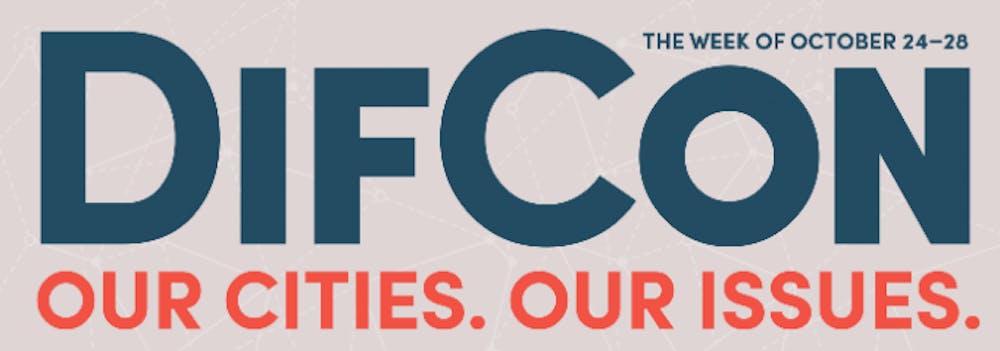A number of troubling cultural events have recently occurred in the U.S. and for some students it is difficult to talk about or process them.
This week, the second-annual weeklong discussion series called DifCon will provide the campus with an opportunity to talk about issues such as police violence, LGBTQ prejudice and the Flint water crisis. The Intercultural and Diversity Center and the Office of the Vice Provost for Equity and Inclusion are co-sponsoring the series.
Each day this week, students, faculty and staff will gather for a dialogue with three faculty members or staff panelists who will provide their insights on selected issues that affect the community.
DifCon, a title that stems from the phrase “difficult conversations,” was designed to provide an opportunity for the UB community to talk about national critical issues in an open and inclusive setting.
There will be one discussion each day. Topics include:
Monday: “Shootings in Minneapolis, Baton Rouge, and Dallas,” which is about police violence and violence against police.
Tuesday: “Tragedy in Orlando,” which is about Violence against the LGBTQ community, violence against the Latino community and domestic terrorism.
Wednesday: “New Haven and Hyde Park Protests,” which is about academic freedom, free expression and inclusion.
Thursday: “The Cleveland and Philadelphia Conventions,” which is about political polarization.
Friday: “Lead Threat in Flint – and Buffalo?” which is about lead in the water supply and calls for accountability and reform.
All discussions will take place from 12 p.m. to 1:30 p.m. Wednesday’s discussion will be held in 330 Student Union, while the rest will be held in the Intercultural and Diversity Center (240 Student Union).
Teresa Miller, vice provost for Equity and Inclusion said the series is a continuation of last year’s DifCon12 and that it was a “small pilot” for what she expects this week to be.
“We realized that DifCon12 was really targeted to undergraduates living in the dorms,” Miller said. “One of the lessons learned from DifCon12 was that there is a real appetite for these types of discussions by faculty, students and staff… across broader swatches of campus.”
The desire to hold a second version of DifCon is in response to police violence and violence against police in cities across the nation this past summer, according to Miller. The Orlando nightclub shooting and Republican and Democratic National Conventions also inspired this semester’s series.
“The summer got me thinking a lot about how our students will come back to campus,” Miller said. “Will we acknowledge that things are changing in the world that really have a tremendous impact on how people see the world? It struck me that it was really important to acknowledge that these things are happening and help people make sense of them and deal with them here in the institution of higher education.”
Miller said there is “something really special that happens when people come together” to talk about issues in a format like DifCon “when the conversation is earnest but respectful and constructive.”
“These conversations have clear ground rules and if the student feels like they’re not being valued or respected in the process, then they need to hold us to that,” Miller said.
Jason Hamlet, a senior biological sciences major and a student assistant in the Office of the Vice Provost for Equity and Inclusion, was involved in the planning and promotion of the DifCon series. He believes the series is applicable to everyone on campus, such as the presidential election.
“I think this is an important event to have on campus because the topics we are going over [what affects students, faculty and staff] in certain ways… whether directly or indirectly,” Hamlet said.
Hamlet’s advice to any student nervous to attend the series is to come anyway and to realize that they are going to be creating an environment of respect.
“I think you just have to take that leap of faith and go in there because it’s an area where nobody will judge you for what you’re saying,” Hamlet said.
Miller said her overall goal for the series is to further create a respectful and inclusive community at UB.
“Each of these talks is a microcosm of something that will go on in their life later on,” Miller said. “It might be a workplace issue, or it might be a neighborhood issue, or it might be a political issue… but I would say that being able to lean into these difficult conversations gives students the tools to be able to handle them as they go through life.”
Jimmy Corra is a news staff writer and can be reached at news@ubspectrum.com





